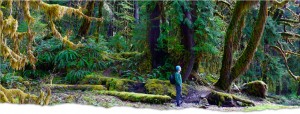Living With Uncertainty
- At April 25, 2020
- By drynick
- In Reflections
 0
0
Many commentators refer to these days as a time of uncertainty. This uncertainty is often cited as one of the most challenging aspects of our lives in the pandemic. But is this uncertainty really a bad thing? And whether it is or not, if this really is a time of uncertainty, how can we meet it in creative and constructive ways?
The human mind seems to like a clear and simple stories that explain the world around us. Our minds naturally move toward binary categories: Is our current uncertainty good or bad? Are we safe or in danger? Will we be OK or not? We just want to know.
Once the mind forms its opinion, we often feel a sense of relief—‘Well, at least I know.’ The opinion does not need to be true to be comforting. I don’t have to be accurate or complete in my thinking to feel right and settled in my opinion. The settledness of mind simply feels good. As long as there is uncertainty, some part of me is thinking and wondering and trying to solve the problem.
But one of the problems with ‘knowing’ is confirmation bias. Confirmation bias is the tendency human beings have to notice the things that confirm our opinion and either not see or not give the same weight to things that contradict our viewpoint. We tend to like people who agree with us (the ones who see the world as clearly as we do) and struggle with or avoid those who have other opinions.
In the Zen tradition, we say not-knowing is good. Rather than a problem to be solved, not-knowing is a way of directly meeting the reality of our lives. (As I write this, I am aware that I am now encouraging us to put ‘not-knowing’ in the binary category of ‘good’ as opposed to ‘bad’. While this is slightly ironic, creating the same feeling of certainty I was recently criticizing, it does seem useful in helping us meet and work skillfully with the ever-changing world around and within us.)
Shunryu Suzuki, the teacher who founded the San Francisco Zen Center, once famously said “In the beginner’s mind there are many possibilities, but in the expert’s there are few.” Being an expert means approaching a situation with a lot of experience; you already know what is going on and you know what you are going to do. While this can be wonderfully beneficial in some situations, for life in general, this kind of ‘knowing’ causes a narrowing of engagement with the world around us and fewer options going forward. We don’t see what is here, we simply see what we expect.
Part of our Zen training is learning to be comfortable with the discomfort of this sometimes unsettled feeling of not-knowing. As long as we think we ‘know’ we are stuck in the world of the past – the world of the mind. When we realize that we don’t know everything (or even very much at all), we can move with greater ease in the world that is constantly changing and evolving.
The truth is that we don’t ever really know what is coming next. You may think you know what the day will bring, and you may be right some large percentage of the time, but you never really know. Instead of trying to base our lives on how much we know, can we begin to create a foundation of not knowing – of openness to what arises from moment to moment?
 Can we notice our natural desire for certainty and rather than trying to fix it by making up some fixed position, can we simply to allow ourselves not to know? Can we be more curious about what is here than about our opinions about what is here?
Can we notice our natural desire for certainty and rather than trying to fix it by making up some fixed position, can we simply to allow ourselves not to know? Can we be more curious about what is here than about our opinions about what is here?
The great 20th century poet William Carlos Williams carried a pad of paper with him as he moved through his work day as a doctor making house calls. The top of the page was always titled ‘What I noticed today I have never noticed before.’
Maybe today we can all keep our eyes open just like he did.


Follow David!